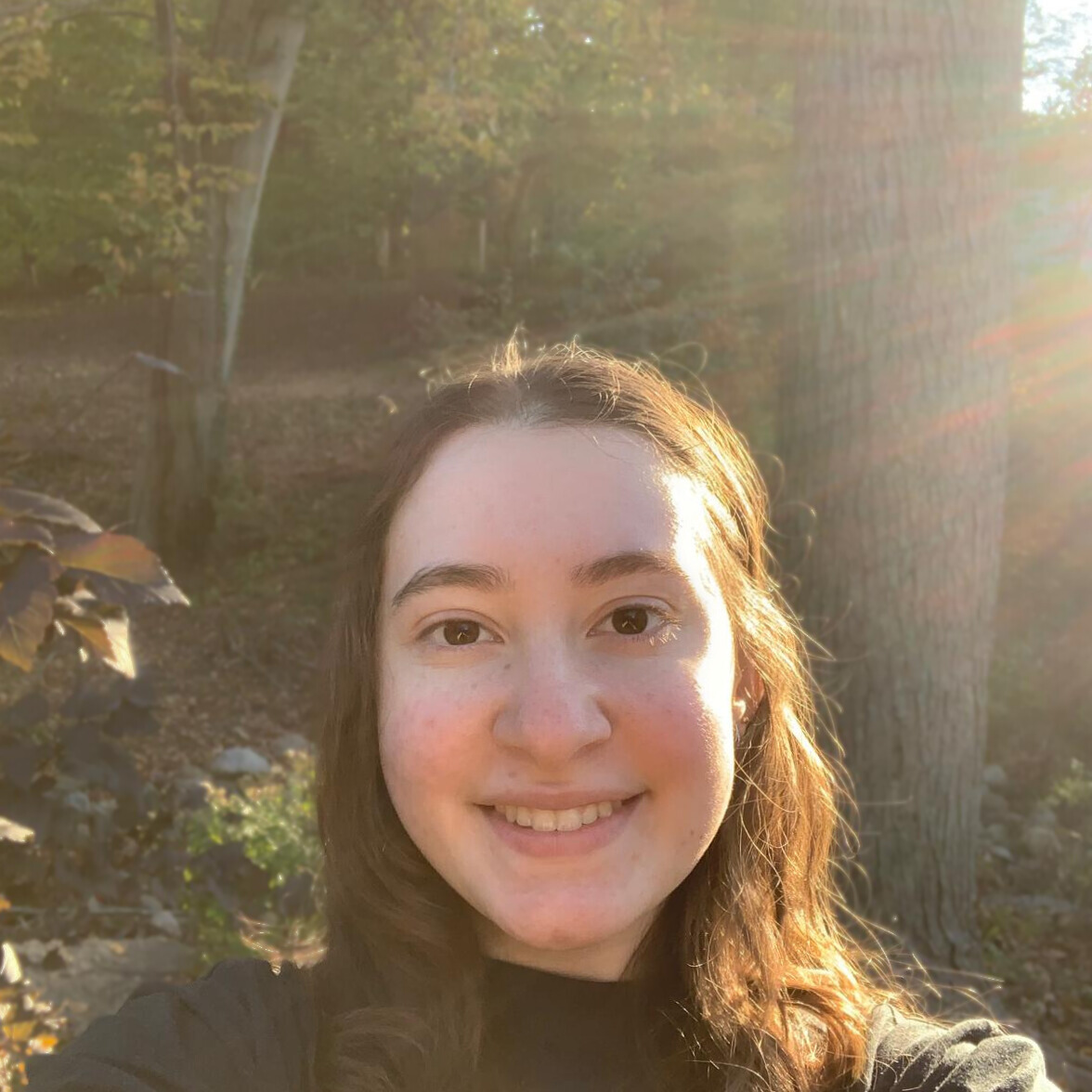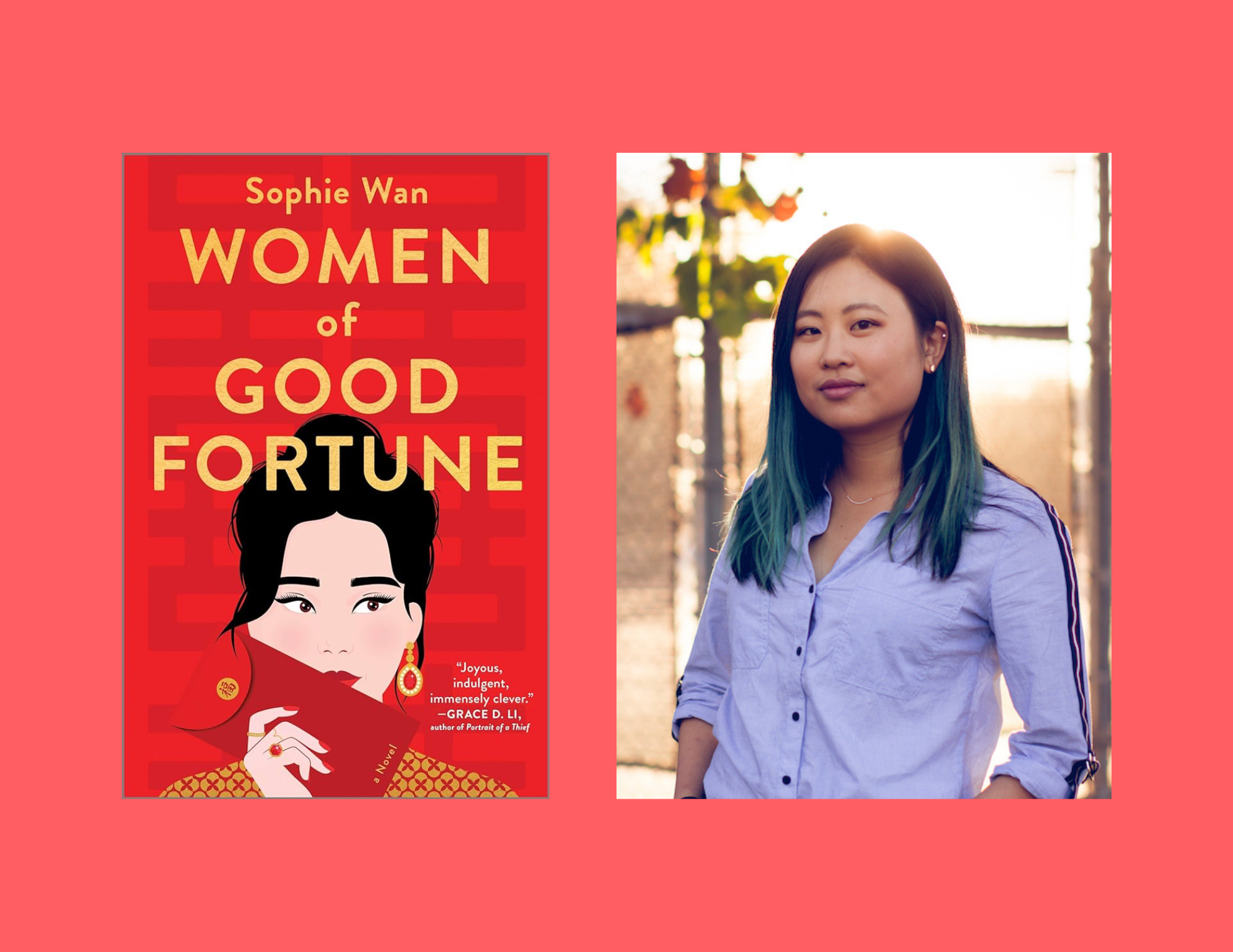Sophie Wan is the author of Women of Good Fortune, her debut novel. She is a graduate of UC Berkeley and is currently in grad school in Philadelphia. Her writing has been highlighted in publications such as Publishers Weekly, The New York Post, and The Happy Reader.
Eliana Zagdanski: What was your process like for writing Women of Good Fortune?
Sophie Wan: When I first thought about the book, I had a general idea about who the characters would be, so I started there with Rina, Jane, and Lulu. I think I knew from the beginning what one thing each of them wanted, so I had that as a driving force for a lot of the plot. I was trying to combine that with this idea of having some kind of heist where they were stealing red envelopes from a wedding. Knowing that I was building up to that heist, I was thinking about the standard plot points for your typical heist. If you watch enough movies, you can start picking up what those moments are. I had those as the different acts that I had to be thinking about. Within them, I had to be thinking about what each of those women was doing, and how their motivation affected the way that they interacted with each other and the specific roles they took in the heist. I think the first draft that I wrote was very messy, and the book changed a lot during all of the revisions that I did. But I was able to hit on some key moments that I knew would be the specific milestones of the book. In future revisions, I fleshed out the heist more, and I also had to go back and revisit the character development for each of the women—to make sure that their points of view sounded different enough from one another. You start with this very general thing. It’s a huge mess, and then you sharpen it, move things around, and take things out, until you get to the finished product.
EZ: I was wondering why you chose a heist to be part of this story, which seems to be centered around relationships. How did the idea of a heist come to you?
SW: The idea was actually from a conversation I had with a friend. He was telling me about a Chinese wedding that he had been to, and how they were collecting the envelopes in a glass safe. He was like, ‘You should write something where people are stealing the red envelopes.’ The idea just snagged in my mind, and I couldn’t let it go. At the time, I was reading a lot about the leftover women in China, and I started thinking about if there was a way for me to combine these two things together. And explore a lot of these societal issues and frictions but against a fun backdrop. That was where the idea of the heist came from. It was also really helpful for me because, when I’m writing, something that I’ve struggled with sometimes is being very clear about what characters’ wants and needs are. There was never any question about what they all wanted, and I think that helped me when it came to planning out the plot.
EZ: I am curious about the reason you chose Shanghai as your location—if you visited or have connections there, or if there were any other places you thought of setting the book.
SW: It was always going to be Shanghai because I wanted the background to feel natural to some of the topics I was covering. While they’re relatable to what a lot of women experience in the U.S., having it in China allowed me to go more into depth about the 996 work culture, as well as certain perspectives towards married women and growing older. To me, that felt like the most authentic place to set it. I also wrote this during Covid, and I was pretty sick of being where I was. It was a nice way to escape—to research a place I had been before and had great memories of, but maybe I didn’t fully understand. Writing this book was a nice way to reconnect with those memories, and also talk to my parents and my relatives about their experiences living in China.
EZ: At the beginning, all the women are chasing something, but as the book goes on, they realize that their relationships come first. How is that message important to you?
SW: At the beginning they all want their different things, and at the end, they realize that all those different things aren’t going to substitute for the friendships, the family, and the love that they have. Thinking about what really matters—and one of those things is definitely friendship—is one of the big messages of the book. There are friendships that ebb and flow but having people who are going to be with you through it all—it doesn’t necessarily have to be through a heist, but through the difficult moments—I think that’s far more precious. I hope that’s something people take away from the book. Those friendships are hard to come by, and it’s really important to hold on to them.
EZ: Do you have any advice for new authors, and also those looking to get published?
SW: My advice would be to just write the story that you feel most strongly about, and to be the most disciplined about it. You have to remember why you do it because there are so many things that happen in the journey of trying to be published that can really beat you down or make you think, ‘What am I doing here?’ I think everyone writes because there is a story they want to tell, and something they feel strongly enough about to put in the time and effort to put those words on paper. Holding on to that feeling and reminding yourself what about the story really excites you and what you are trying to say through it is important. Sometimes you do need to just sit your butt down every day and write for a certain amount of time to get to that final step of finishing something. That was something I struggled with for a long time—I just couldn’t finish something. Once you get there, you are already so much farther in the process than so many people who want to get published.
EZ: Do you know what’s in store next for you?
SW: I am working on another book. I don’t know how much I’m supposed to share, but it will be a very different story from Women of Good Fortune. A lot of the themes and things that I am exploring, I’m hoping to go further into depth on them with this book—like themes about friendship, what happens with the passing of time, what kind of relationships are worth keeping and how that changes in the face of ambition.
Learn more about Sophie Wan here, and purchase Women of Good Fortune here.

